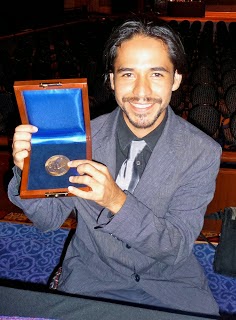 “I became interested in writing when I was in elementary school,” says Duncan Tonatiuh, award-winning author and illustrator. “A cousin of mine came to visit me during the summer. He brought a stack of comic books with him. Soon after, I began collecting Spider-Man and X-Men comics myself. I also began to imagine my own superheroes and make little books with the drawings and stories I created. I have been drawing since.”
“I became interested in writing when I was in elementary school,” says Duncan Tonatiuh, award-winning author and illustrator. “A cousin of mine came to visit me during the summer. He brought a stack of comic books with him. Soon after, I began collecting Spider-Man and X-Men comics myself. I also began to imagine my own superheroes and make little books with the drawings and stories I created. I have been drawing since.”
Tonatiuh spent his early years in San Miguel de Allende, a small city in central Mexico. When he was 16, he came to the United States. “I did not like my high school in San Miguel, and an American cousin of mine encouraged me to visit his school in Massachusetts. It was an arts-oriented progressive boarding school called Buxton. I liked it so I applied and got a very good scholarship to attend. After I graduated from Buxton, I went to Parsons School of Design and Eugene Lang College—both schools are part of the New School University in New York City. There I focused on illustration and writing.”

The Princess and the Warrior page spread

The Princess and the Warrior page spread

The Princess and the Warrior page spread
“I think it is important for children to see themselves in the books they read. When a child sees people like him in a book, he feels excited to read and feels proud of his culture. He realizes his voice and experiences are important.”
At college in New York, Tonatiuh made a friend named Sergio who was a Mixtec. That friendship influenced Tonatiuh to discover and develop his signature style inspired by ancient codices. “My thesis in college was about my Mixtec friend, Sergio. Mixtecs are an indigenous group from the states of Oaxaca, Guerrero, and Puebla in Mexico. My thesis was a short comic book about his journey to the U.S. When I first began working on the project, I went to my university’s library and looked up Mixtec artwork. I found images of Mixtec codex from the 14th century. I had seen similar artwork before, but that day I was struck by how the images were stylized by the flatness, geometry, and repetition of color. I decided I was going to draw in a similar style and make a modern-day codex of my friend’s journey.”
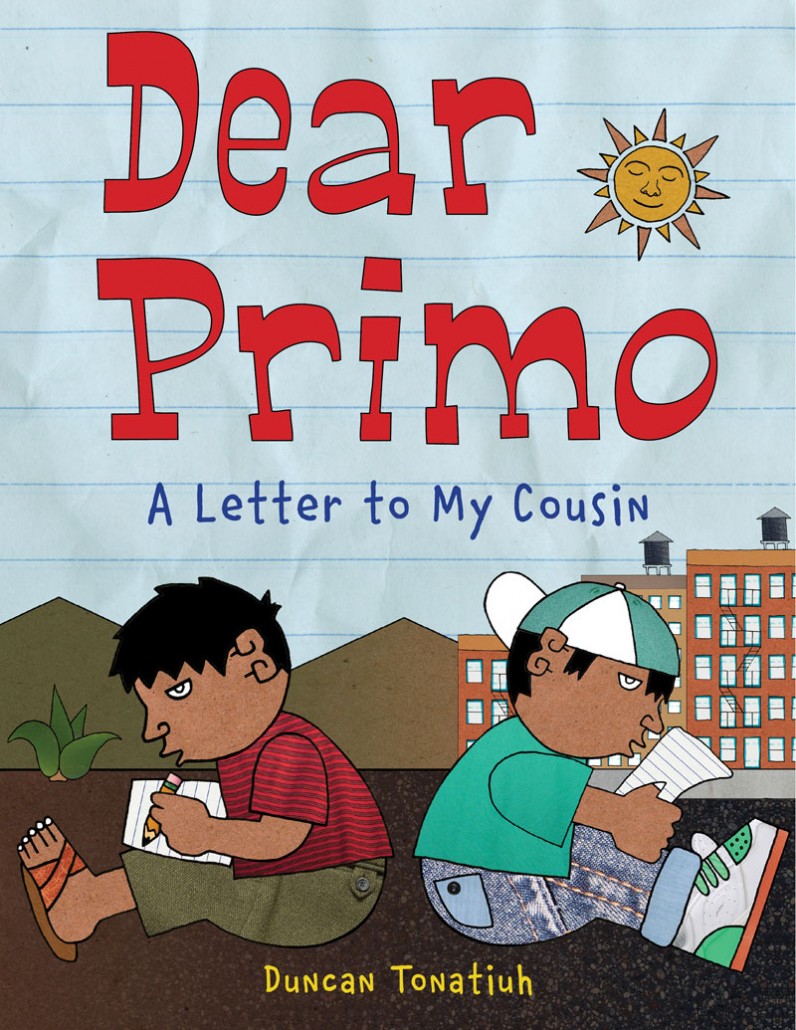 This thesis project became Tonatiuh’s key to entering the publishing world. “A professor in college really liked the artwork I was creating for my thesis. She had illustrated some children’s books and was friends with an editor at Abrams. She showed him my work and introduced me to him. Howard, the editor, liked my artwork and told me that if he received a manuscript that suited my style, he would get in touch with me. I told him that I liked writing, too, and that I was taking some classes in school. Sometime later, while I was still finishing my thesis project, I had an idea for a picture book. It was about two cousins that would write letters to each other. One lived in a rural community in Mexico, and one lived in an urban center in the United States. I revised the story many times but it eventually became my first book, Dear Primo: A Letter to My Cousin (Abrams Books for Young Readers, 2010).”
This thesis project became Tonatiuh’s key to entering the publishing world. “A professor in college really liked the artwork I was creating for my thesis. She had illustrated some children’s books and was friends with an editor at Abrams. She showed him my work and introduced me to him. Howard, the editor, liked my artwork and told me that if he received a manuscript that suited my style, he would get in touch with me. I told him that I liked writing, too, and that I was taking some classes in school. Sometime later, while I was still finishing my thesis project, I had an idea for a picture book. It was about two cousins that would write letters to each other. One lived in a rural community in Mexico, and one lived in an urban center in the United States. I revised the story many times but it eventually became my first book, Dear Primo: A Letter to My Cousin (Abrams Books for Young Readers, 2010).”
Since Tonatiuh’s books were published, his award-winning work has stood apart. His stories focusing on Hispanic culture and issues have won high recognition including multiple Pura Belpré Medals, multiple Tomás Rivera Mexican American Children’s Book Awards, and inclusion on the New York Times Best Illustrated Children’s Books list. He has even presented a Tedx Talk entitled “Life on the Other Side/La Vida en el Otro Lado.”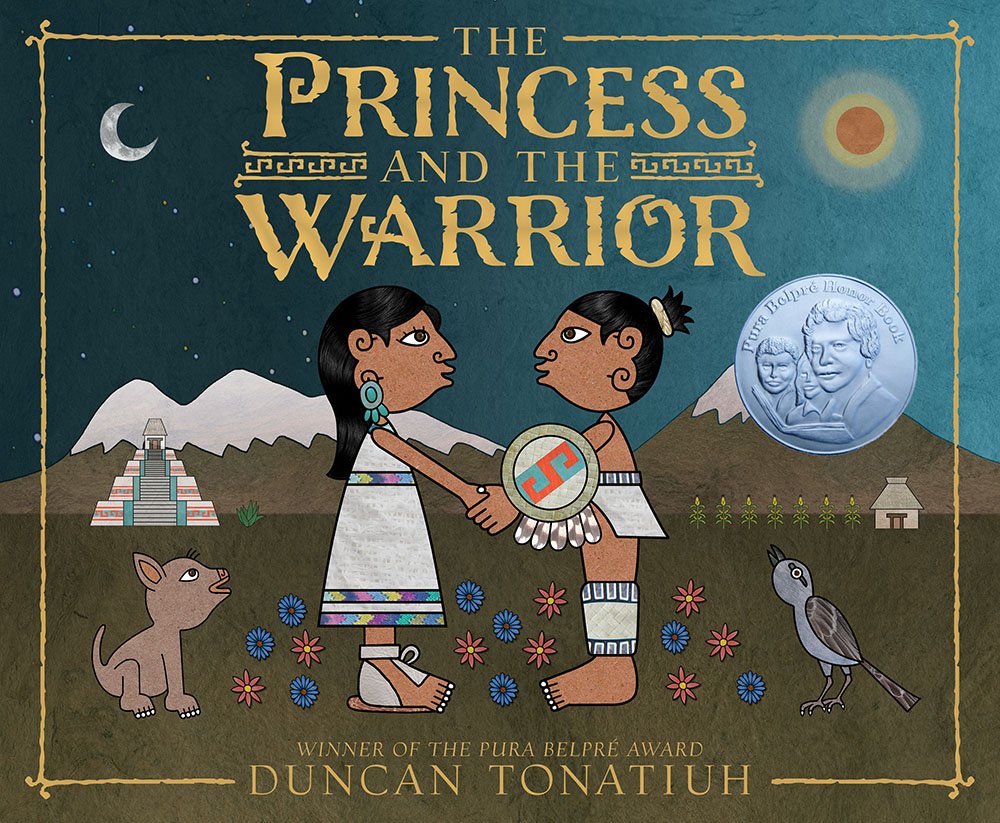
“I am both Mexican and American. I have lived in both countries. I have family in both nations and I feel at home in both places. I feel very lucky that I have two passports and that I can enter and exit Mexico and the U.S. as I please. A lot of people don’t have that privilege.”
Though Tonatiuh has not walked the path of undocumented migrants or experienced discrimination, he has chosen to write stories addressing these perspectives, such as Pancho Rabbit and the Coyote: A Migrant’s Tale (Abrams, 2013) and Separate is Never Equal: Sylvia Méndez & Her Family’s Fight for Desegregation (Abrams, 2014).
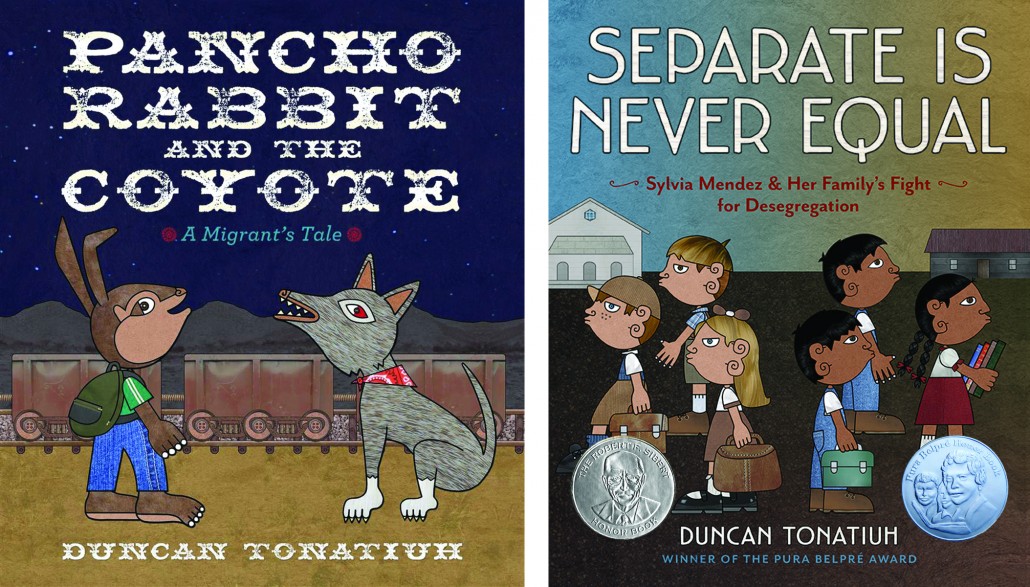
“As a Mexican American author and illustrator, I feel it is important for me to talk about critical issues since such a limited number of books do so. I definitely agree with and support the call for more diversity in children’s literature. The statistics are very upsetting. Even though Latinx children are one of the largest groups in U.S. schools, only about 3% of all the children’s books are about or by a Latinx. Diverse books are important for all children, not just Latinx. When kids encounter people that are different than themselves in books, they are less likely to be afraid or have prejudices towards others when they are adults.”
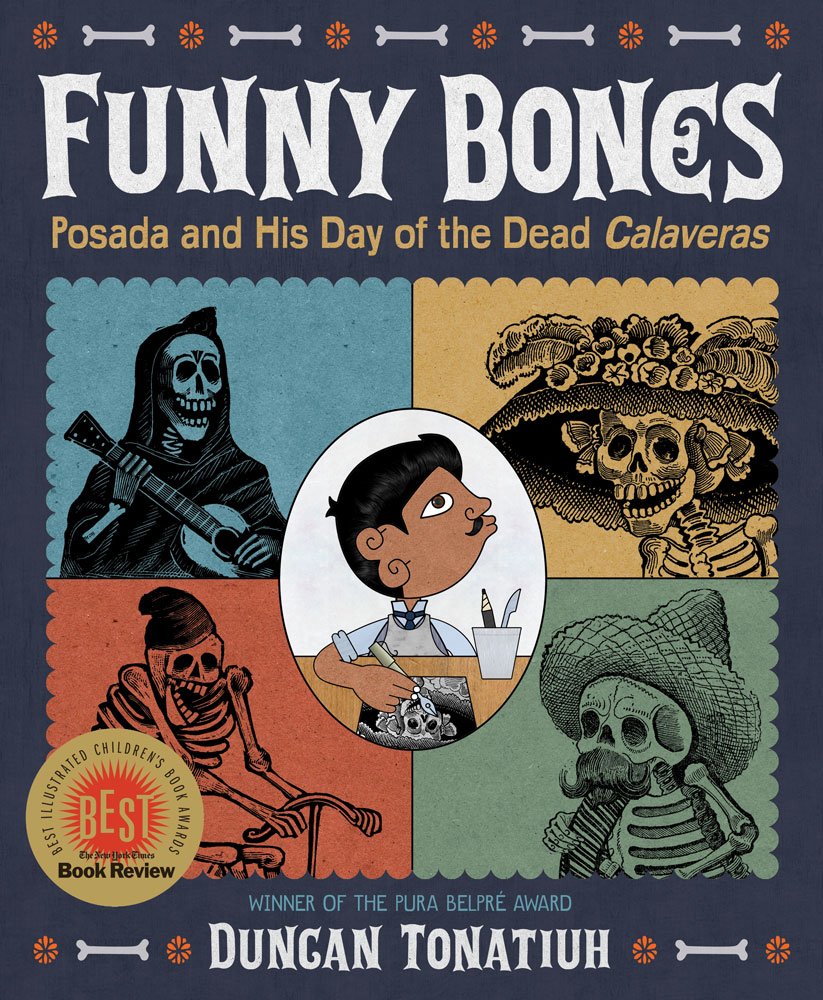 Working from his home in San Miguel, Mexico, Tonatiuh stays busy creating books and making school visits in person and via Skype. He also speaks at public libraries, universities, and conferences. “My pres
Working from his home in San Miguel, Mexico, Tonatiuh stays busy creating books and making school visits in person and via Skype. He also speaks at public libraries, universities, and conferences. “My pres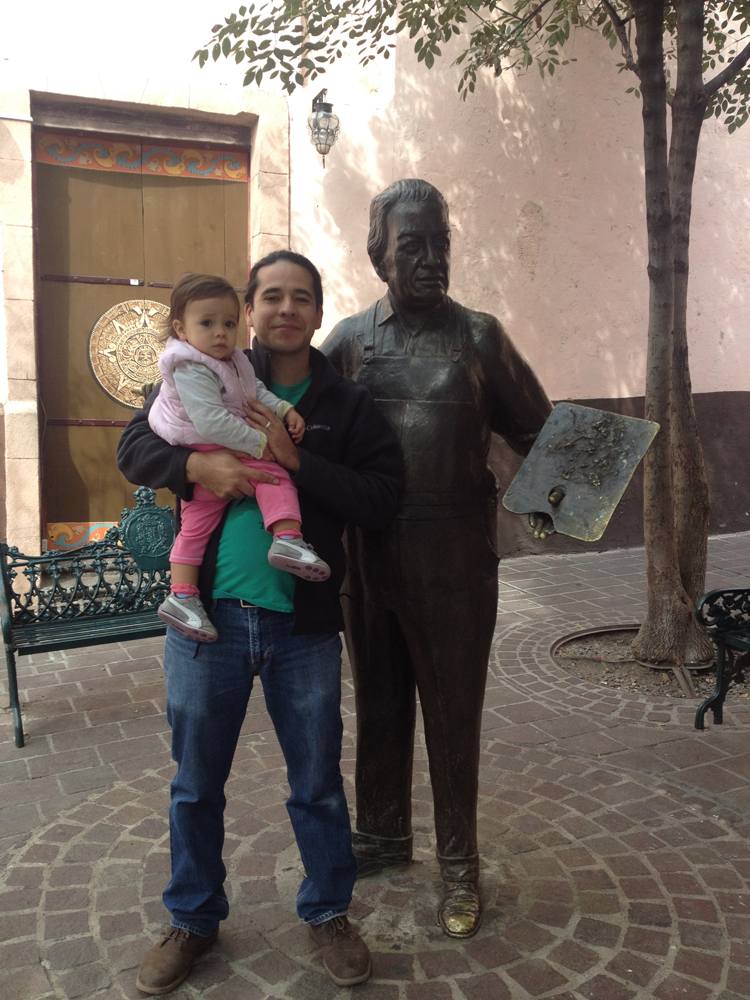 entations for children are not that different from my presentations for adults. I usually share a little bit about my journey to becoming an author-illustrator. I talk about the process of making a book, and about the issues and topics that inspire my work.”
entations for children are not that different from my presentations for adults. I usually share a little bit about my journey to becoming an author-illustrator. I talk about the process of making a book, and about the issues and topics that inspire my work.”
Currently, Tonatiuh is in the process of revisiting his thesis project from college; with an anticipated publish date for next year. “It will fold out like an accordion the way Mixtec codex did. This book is geared towards adults and teenagers. It will tell the story of a Mixteco’s journey to the United States, but it will also be about his fight to improve the working conditions at his job regardless of his legal status.” And later this year, Tonatiuh’s newest book will be published. “It is called Danza! Amalia Hernández and el Ballet Folklórico de México (Abrams, August 2017).
“For a year or so I did not have a TV in my house. I would borrow a book from my school’s library every day to entertain myself in the afternoons. My favorite books were the Choose Your Own Adventure series. Because I liked reading, I became interested in writing. Whenever I had a writing assignment at school, I would get carried away. That interest continued and grew in high school and later on in college.”
“I feel very fortunate for all the support my books have received. I really love making books, and I want to continue doing it for many, many years. Hopefully in the years to come, people will still find my work interesting and relevant.”
What’s in a Name?
“My full name is Duncan Tonatiuh Smith Hernández. Tonatiuh is my middle name. My father’s last name is Smith and my mother’s is Hernández. I decided to sign my books Duncan Tonatiuh because I think it better reflects what my work is about. Tonatiuh means sun or god of the sun in Nahuatl. Nahuatl is the language the Aztecs and other people from the central region of Mexico spoke. Since my artwork is inspired by pre-Columbian art, it made sense to me to use Tonatiuh.”
What is Latinx?
“Latinx (pronounced “La-TEEN-ex”) is a gender-inclusive way of referring to people of Latin American descent. Used by activists and some academics, the term is gaining traction among the general public, after having been featured in publications such as NPR to Latina.”
www.complex.com/life/2016/04/latinx/






